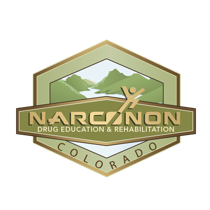How to Talk to Someone Who Is in Denial about Their Addiction

The story is pretty common: someone has a problem with drugs or alcohol and everybody seems to know it but the person in question. It could be a brother, uncle, sister, mother, daughter, friend, coworker or really anyone you know. The situation can range from just plain frustrating to extremely heartbreaking. Either way, it is a tough spot to be in.
The idea of confronting someone about their addiction can be pretty daunting. You never really know how the conversation is going to go. One thing for certain is that it will probably be pretty uncomfortable to talk about for everyone involved.
So what do you do when it is glaringly obvious to everyone else that there is a problem? How do you confront the elephant in the room? How do you get someone to see that there is a problem when they are completely in denial?
Here are some good things to keep in mind when confronted with this type of situation:
1. Make sure that you are coming from a place of love.
A sure way to shut someone off is to come at them in an accusatory manner. Trying to guilt and shame a person into seeing that they have a problem will not make them very receptive to anything you have to say. Starting off by letting the person know you care about them and are concerned by some of their behavior is oftentimes the safest way to begin the conversation. Coming from a place of love is the best way to get someone to open up about what’s going on.
2. Understand that there is a good chance they will become defensive.
No one likes being called out for something or being told they have a problem. This can be an especially hard thing to hear from someone. Many times the first response a person will have is to get angry or defensive. Just realize that this is a very normal reaction and do your best not to take it personally.

3. Realize you might not get through to them right away.
Realizing and accepting that there is a problem can take time. This can be an extremely difficult process. Even if you are not able to get someone to admit they have a problem right away know that you have at least planted the seed for them to realize what is going on. There may even be a good chance that on some level the person already knows they have a problem but are not yet willing to admit to it to others.
4. Try to help them to see the negative ways that substance abuse is impacting their lives.
Use specific instances of times you have seen substance abuse have a negative impact on their lives. Whether it be getting a DUI, getting arrested, losing a job or a spouse, etc. Make sure to do this in a loving way that helps them realize how much better their lives could be without drugs or alcohol continually bringing them down.
5. Don’t talk to them about it while they are under the influence.
Do your best to try and find a time to talk to the person while they are sober. A conversation with someone who has been drinking too much or is so high they cannot keep their eyes open won’t be very productive. The best time to get through to someone is while they are sober, or at least as sober as they are willing to be.
6. Be supportive without enabling.
Make sure to learn and understand the difference between helping and enabling someone with an addiction. The worst thing you can do for an addict is to enable their drug or alcohol abuse to continue. Let them know that you will be there for them however you can and will do what you are able to help them get better but that you will not enable self-destructive behavior.
7. Remain as calm as possible.
The person you are confronting will most likely become emotional in some way. The best thing you can do is to remain calm and not get caught up in a yelling argument. If things escalate too quickly let the person know you would like to continue the conversation at another time once they have had some time to cool down.

8. When needed consult a professional.
There is nothing wrong with seeking out professional help. There is also nothing wrong with admitting you don’t know where to start. This is why there are people out there who are dedicated to helping others in these types of situations. If you feel so overwhelmed by the idea of confronting your loved one about their addiction then speaking with an addiction professional may just be the boost of confidence you need to get the job done.
One of the most difficult things a person can go through is to see someone they care about destroying their life. It may be extremely uncomfortable to bring up these sorts of topics but it is better than never saying anything at all. It may take a long time for the person to finally come around and see what you are saying is true but at least you will know you have done everything you could to help.


